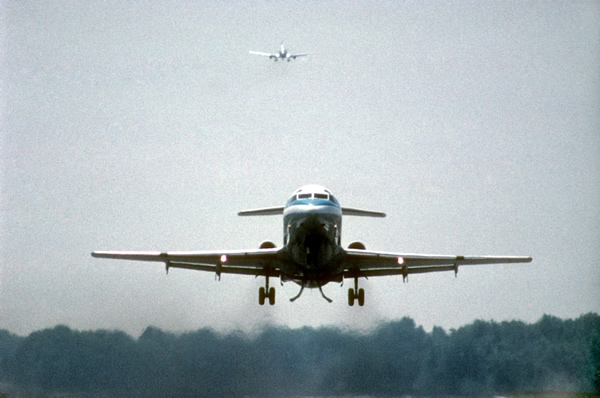Aviation Security: Defending U.S. Passenger Airplanes Is as Important as Ever
Brett Ramsay /
Terrorists may have attempted a hijacking “dry run” onboard a recent flight from Washington, D.C., to Orlando. According to news sources, four men engaged in disruptive behavior seemingly designed to distract flight crew members. The incident reminds us that terrorists still view commercial aviation as a potential target, and effective aviation security is as important as ever.
However, the Department of Homeland Security (DHS) hasn’t always been up to the challenge of delivering cost-effective, sensible security.
The Transportation Security Administration’s (TSA) The Secure Flight program and the TSA PreCheck program are examples of where the agency has done something smart. DHS should continue to expand this risk-based strategy. It should also refocus on the Security Partnership Program (SPP), which makes screening more effective and less costly.
On the other hand, DHS has utterly failed to follow through on fully utilizing one of the most effective and least costly tools at its disposal. The Federal Flight Deck Officer (FFDO) program, which deputizes pilots as federal law enforcement officers, is a low-cost alternative to air marshals ($15 per flight, as opposed to around $3,300 per flight for air marshals). It also increases strategic deterrence to possible hijackers, since FFDOs increase the presence of federal officers on flights by five times. As a cheap, effective deterrent to hijacking and last line of defense, the FFDO program truly makes the United States safer.
Congress should reject the Obama Administration’s recommendations to slash FFDO funding and instead renew its focus on expanding participation in aviation security.
The U.S. needs to remain vigilant and continue to improve its aviation security. While the TSA has accomplished a great deal, terrorist plots and practice runs on airplanes continue, and the U.S. cannot rest on its past achievements. By expanding programs like SPP and FFDO, the U.S. can make the skies safer, more convenient for travelers, and less burdensome for taxpayers.
Brett Ramsay is currently a member of the Young Leaders Program at The Heritage Foundation. For more information on interning at Heritage, please click here.

